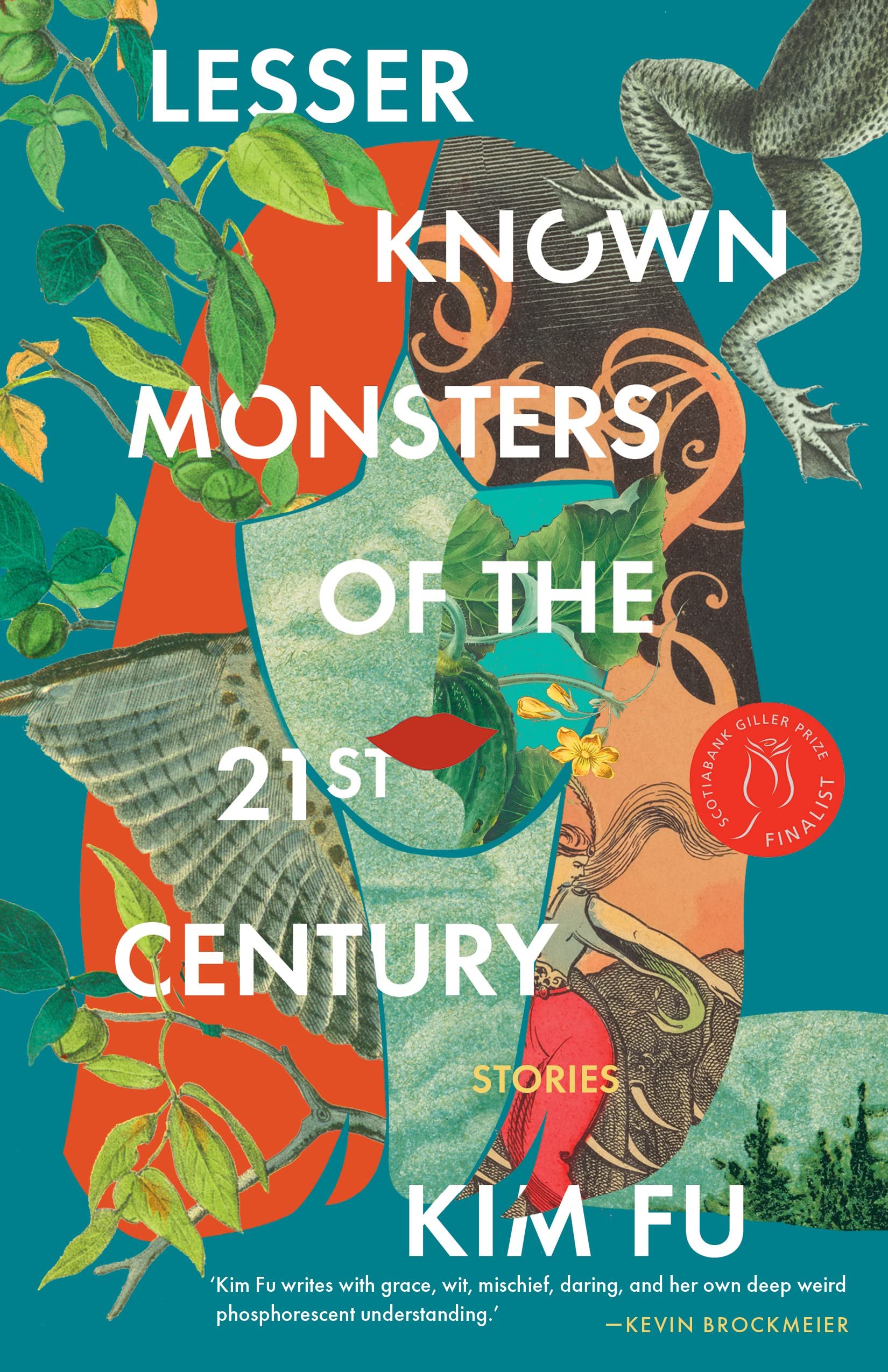Tali Voron
Kim Fu, Lesser Known Monsters of the 21st Century.
Toronto: Coach House Books, 2022. $21.95.
I read Lesser Known Monsters of the 21st Century as if my life depended on it—or rather, the lives of Fu’s characters, their fates hanging in the balance. This collection includes twelve stories, each one unique in subject matter and approach. The tales imagine a heightened version of the world we live in, often sprinkling in a bit of the fantastical—like a young girl suddenly growing wings in “Liddy Learns to Fly” or the invention of a device that allows the bodies of living beings to move from the beginning to the end of their existence at the touch of a dial in “Time Cubes”—to reveal both the magic and darkness that haunts us every day. Lesser Known Monsters of the 21st Century is Kim Fu’s debut short story collection, following the novels The Lost Girls of Camp Forevermore and For Today I Am a Boy, and the poetry collection How Festive the Ambulance. This gripping collection was shortlisted for the 2022 Scotiabank Giller Prize, and it’s clear to see why.
Perhaps what stands out most is Fu’s lyrical style. There is precision in her words, as she finds the perfect way to capture a fleeting feeling. In “Sandman” she shows the hollowness one is left with after a series of sleepless nights: “These unbroken stretches of consciousness, days sometimes blurring into one another, seemed just a feature of modern life, not worth complaining about.” Here, she also echoes the time-bending reality of depression; the way it melts into everyday life, a constant thrum in the background that sometimes feels too exhausting, or normal and permanent, to complain about. There were moments that made me sit back, pause, and reread them. These lines read like poetry, sharp and poignant: “She lost small shards of time, a few seconds or less, the film reel of the world stuttering forward.”
Fu’s stories are also filled with vivid imagery. In “Do You Remember Candy,” humans suddenly lose the ability to taste. Allie, a graphic designer, channels her artistic talents into creating sensory experiences that evoke the memory of tasting specific foods. Each of these experiences is luscious and unique, giving readers an entirely new appreciation for the five senses. Like her description of bao “like a fluffy, sun-warmed towel wrapped around your shoulders after you emerged from a cold lake, sucking the cold from your bare limbs and dripping swimsuit.”
What makes this collection unforgettable is Fu’s mastery of cultivating the unexpected. Each story subverts readers’ expectations; the twists are a gut punch in the best possible way. “Twenty Hours” had me quite literally on the edge of my seat for its entirety. It begins with the line “After I killed my wife, I had twenty hours before her new body finished printing downstairs.” Fu spends the story leisurely walking us through the way a husband spends the required twenty hours for his wife, Connie, to be reprinted after he kills her. Each passing hour reveals more of their relationship, the world that allows them to afford this “luxury,” and painstakingly builds the tension, leaving us anxiously waiting to see if Connie will survive her latest murder.
Approaching death from an entirely different perspective, “#ClimbingNation” takes place during the funeral of a young climber, Travis, who falls to his death during a climb. April, only knowing Travis from having followed him on Instagram (“He was less a person than a quilt of these beautifully coloured squares”) attends his funeral. She pretends to be a friend from college, which leads to a complex exploration of what it means to truly know someone and the many forms that grief can take. The ending—which I will not spoil—veers toward darkness, revealing the parts of ourselves that we often refuse to confront, and yet Fu urges us to anyway.
At its core, Lesser Known Monsters of the 21st Century is a collection that gives voice to subjects that we often don’t have all the right words for. Fu explores sexuality, shame, domestic violence, grief, trauma, marriage, mental illness, motherhood, coming of age, and death with nuance and complexity that is hard to find. I urge you to take a peek into the many worlds she has woven, and come face to face with the monsters we encounter each day, but don’t always recognize.
Tali voron
is the managing editor of The Ampersand Review of Writing & Publishing and teaches in the Honours Bachelor of Creative Writing and Publishing at Sheridan College. Tali is the founder and publisher at The Soap Box Press and the founder and managing editor at Plume Press.


